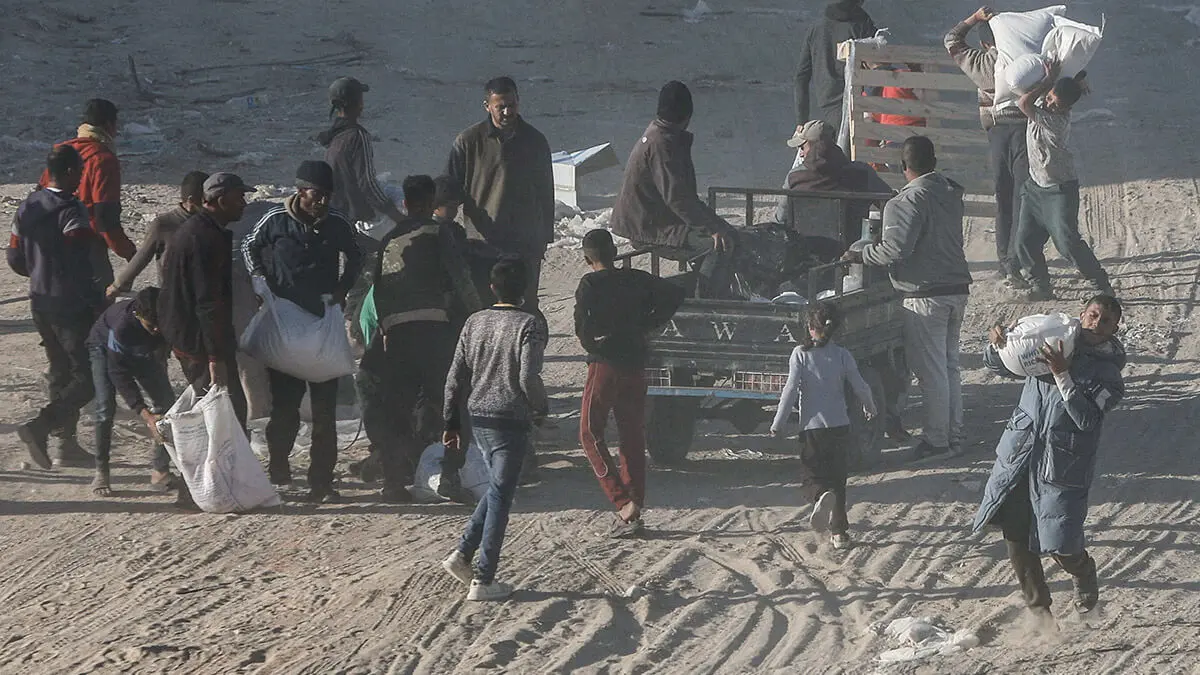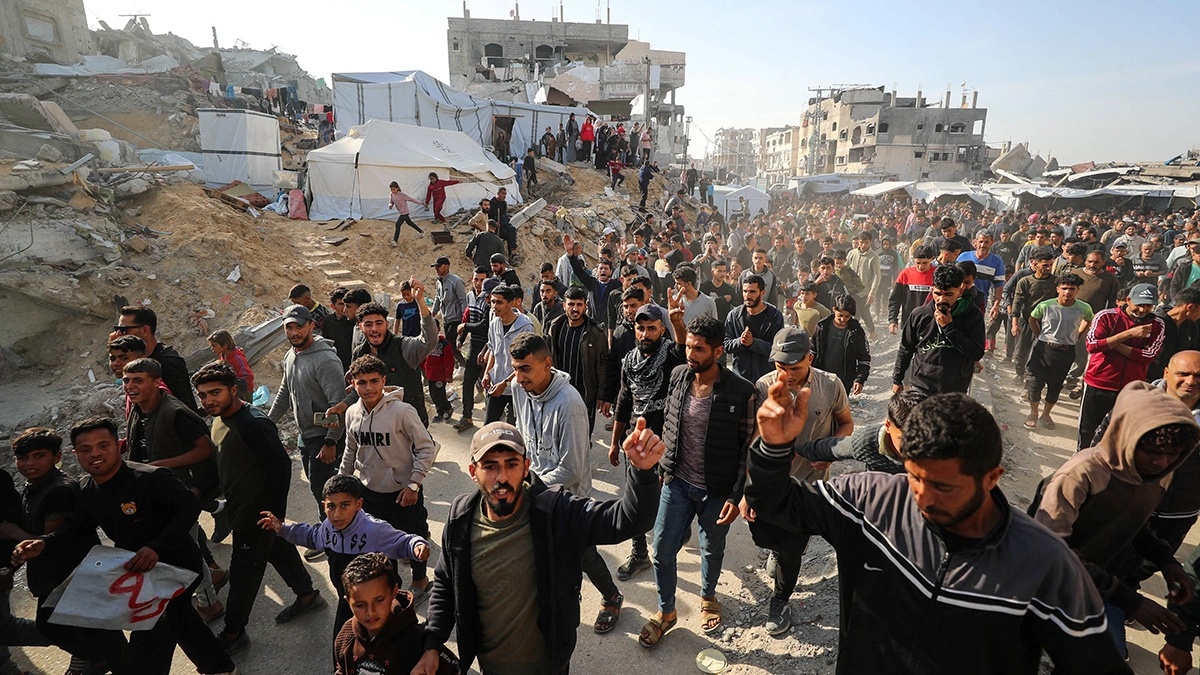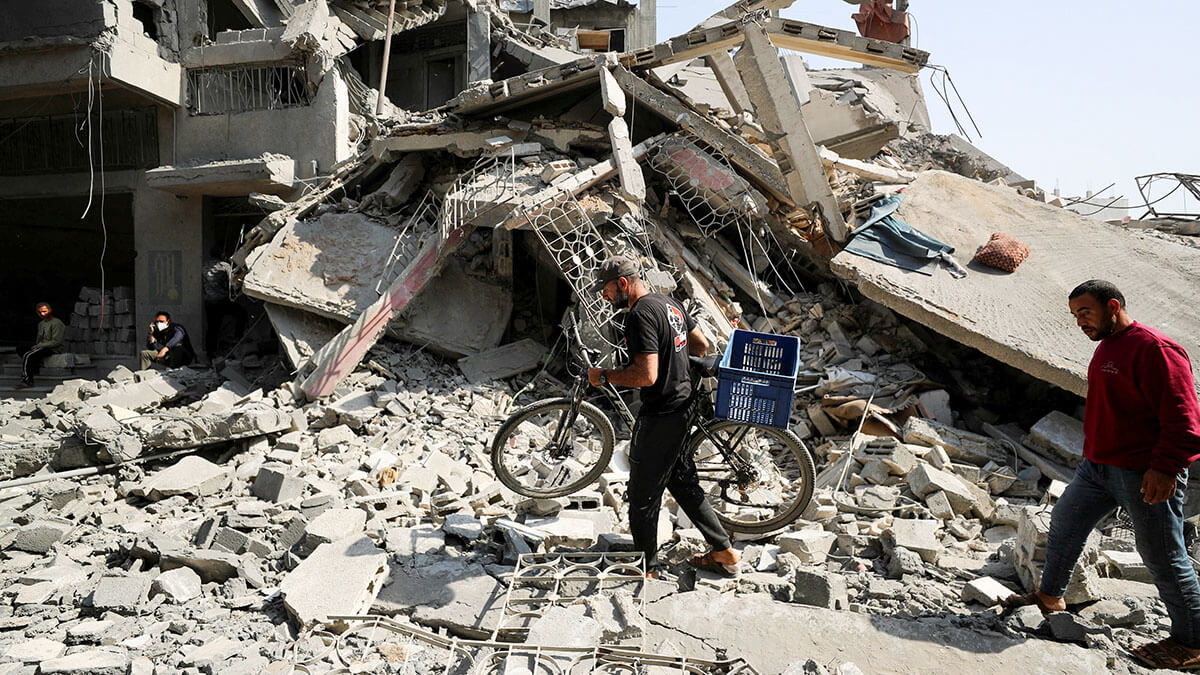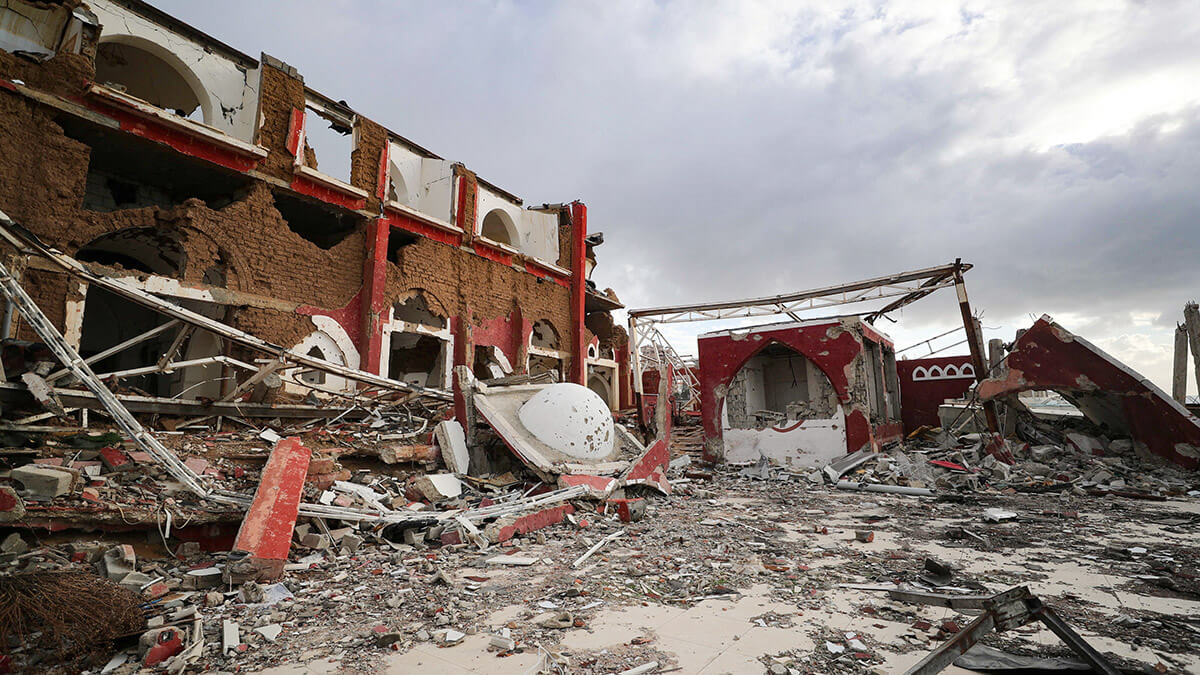Gaza's financial collapse leaves it at the mercy of the black market

Amidst war and after months of siege, the Gazan population has been forced to depend on crisis merchants as their only means of survival, due to the destruction of Gaza's financial infrastructure and lack of liquidity. Networks of money changers and brokers have expanded and now control the enclave's cash flow, imposing abusive commissions. The brokers operate both publicly and confidentially and, in many cases, are the only way to purchase essential items.
The economic collapse and banking collapse in the Gaza Strip add to the widespread suffering caused by the ongoing conflict. The war has hit the population's basic needs hard, especially food, health and fuel.

Without access to banks, Gazans rely on extensive networks of cash brokers to cover their daily expenses, causing transaction fees to increase by 40%. The limited cash remaining in circulation no longer has the value it once had. In addition, Palestinians use the Israeli currency, the shekel, in most transactions and depend on supplies from Israel.
Inflation and unemployment
This is compounded by high inflation and high unemployment, which intensify financial distress. As a result, the lack of solvency to meet urgent needs has forced many families to sell their assets to purchase essential goods. The inflation rate in 2024 rose to 230% according to World Bank data and, although it fell briefly during the ceasefire, it rose again with the resumption of the conflict. In addition, the unemployment rate stood at 80% of the population in 2024, a figure that is expected to continue to rise in 2025.
According to experts, the cash crisis in Gaza is due to the fact that, with reduced salaries and restricted money in banks, people have to pay higher sums to move cash around in an environment mired in greed. Israel also banned cash from entering at the start of the conflict to control Hamas' military and political capabilities, and many wealthy families fled Gaza and withdrew their money.

Concerns about Gaza's financial system have led foreign companies selling goods to the city to demand cash payments. The money supply has shrunk, but desperation has grown, causing brokers' commissions to rise by 5% since the start of the war in October 2023. Currently, Gazans in need of money make an electronic transfer to a broker and then receive a small portion of the transferred amount in physical banknotes.
Money is becoming increasingly fragile and banknotes in good condition are scarce, making it difficult to do business with merchants. This has led to the emergence of a new business: banknote repair, which costs between one and three dollars.
Sugar at 100 dollars
Families survive on their last savings, which they spend on food and fuel, which have risen to unimaginable prices since the war. Sugar sells for between 80 dollars and 100 dollars per kilo, and a litre of petrol costs 25 dollars. When families run out of cash, they are forced to resort to humanitarian aid, which arrives in dribs and drabs in the Gaza Strip due to restrictions imposed by the Israelis.

The lack of data makes it impossible to monitor the real financial situation in the enclave, and experts and observers are also unclear as to whether the activities of cash couriers are beneficial to Hamas, as Israeli analysts claim.
The director of Pal-Think for Strategic Studies, Omar Shaban, has stated that the war makes it difficult to determine how the economy is functioning in the Strip, claiming that it currently operates like a kind of mafia and with exorbitant rates compared to the situation. In the absence of official banking services, residents are subjected to a double situation of instability, finding themselves immersed in an environment of armed violence and extortion by informal groups that profit from feelings of despair and precariousness.








